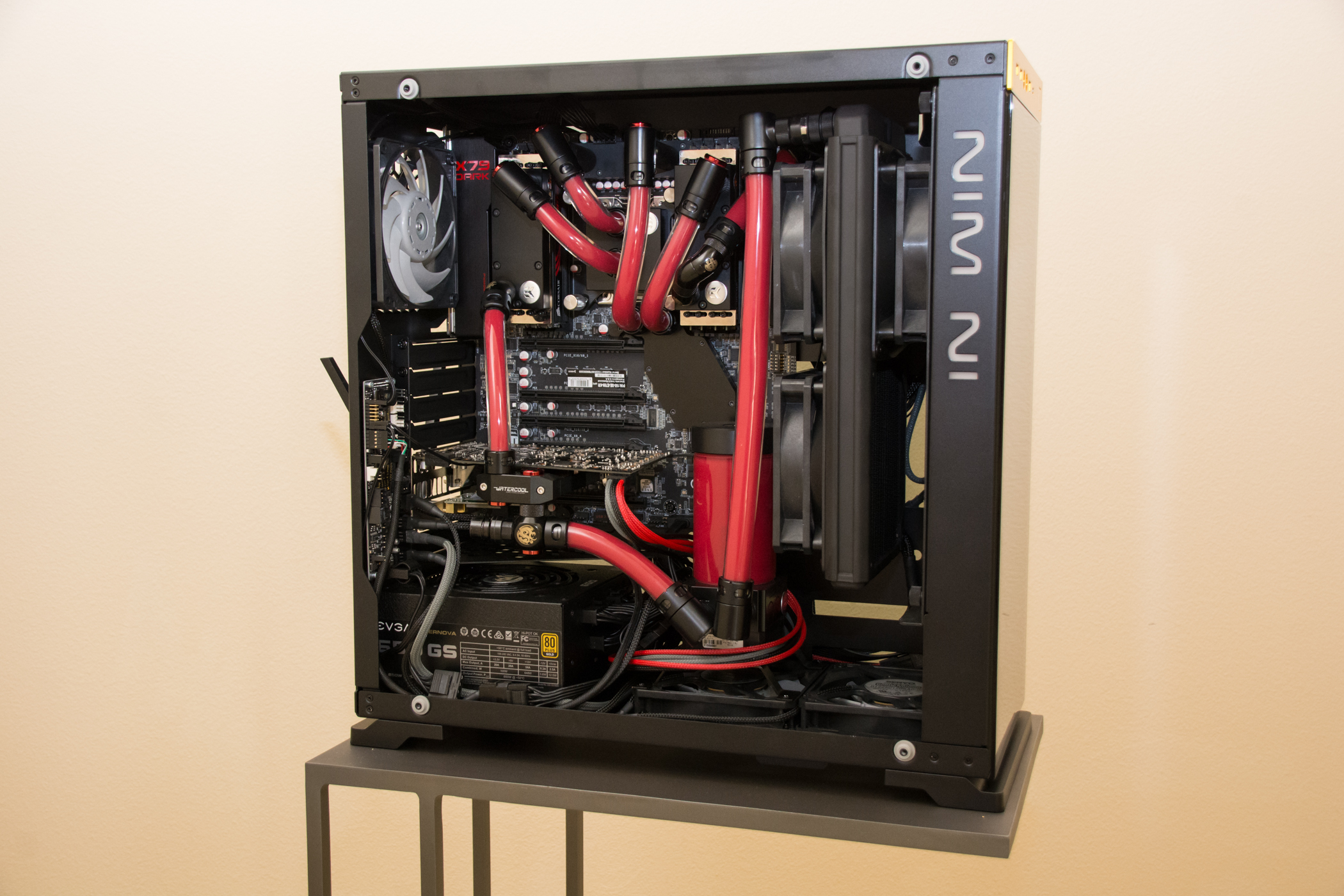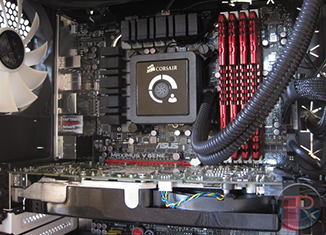The rage lately in storage has been breaking the SATA barrier with M.2, SFF-8639 [1] and PCI-E slot based devices. G.Skill has joined in the fray by announcing the Phoenix Blade PCI-E SSD. The full press release is below but a few major points from it:
1) Only available in 480 GB size for now, with availability in the US this coming week via Newegg at $699. In fact, it is up for pre-order already on NCIX albeit at $799.99.
2) Aesthetically pleasing with hopefully a heatsink on top on the PCB as well
3) Utilizes PCI-E 2.0 x8 with speeds reaching up to 2 GB/s but via a x4 Raid-0 controller. G.Skill claims RAID-5 like data protection but that remains to be seen. For more on RAID, please check out this tutorial.
4) No NVME mentioned
5) This requires a driver [2] for the system to recognize it and use.
5) If it wasn’t obvious till now, this will occupy a full PCI-E slot on your motherboard and also utilize the PCI-E lanes from the chipset and CPU. So account for this, especially if going with multiple PCI-E devices.

Press release [3]:
“Taipei, Taiwan – 22 October 2014 – G.SKILL International Co., Ltd., the leading high performance memory and SSD designer and manufacturer, is excited to announce the Phoenix Blade Series PCIe SSD, the next generation of high-speed, high-capacity storage device. The Phoenix Blade PCIe SSD is the perfect storage solution for extreme gaming, professional graphic design, industrial design, and HD video & audio content creation.
By introducing extreme read and write performance, the potential of today’s multi-core processors can be unleashed, resulting in higher productivity and performance, whether you are in extreme gaming or professional design.
x4 SSD Controllers in RAID0 Setup
Built with x4 SF-2281 SSD controllers in a RAID0 setup and integrated with a massive 480GB array of MLC flash, G.SKILL Phoenix Blade PCIe SSD increases the bandwidth performance up to 4 times over typical SATA3 based SSDs!
PCIe Gen 2.0 x8 Interface
G.SKILL Phoenix Blade PCIe SSD is designed with a PCIe Gen 2.0 x8 high-speed interface, allowing the system to effortlessly send massive amounts of data to and from the SSD and drastically improves performance for professional and industrial graphic applications.
Up to 2,000MB/s Extreme Read and Write Performance
With 480 gigabytes of storage capacity, the G.SKILL Phoenix Blade PCIe SSD is pushing the maximum limit of read and write speeds at up to 2,000MB per second, so large data transfers are faster than ever!
Up to 245K IOPS 4KB Random Write
G.SKILL Phoenix Blade PCIe SSD delivers an incredibly fast 245K IOPS! Experience the performance boost in data intensive processing, such as professional graphic/industrial design and HD multimedia content creation software applications.
TRIM & SMART Support
TRIM and SCSI UNMAP support with major Windows OS versions help maintain consistent write performance, reduce flash deterioration, and most importantly, extend drive life expectancy. Not to mention an extensive set of S.M.A.R.T. attributes allow users to monitor the drive’s health, allowing users to take preventative measures against possible data loss.
Enhanced Data Protection
CRC data protection prevents data corruption during data transfers. By implementing BCH ECC of up to 55 bits per sector and RAID-5-like data protection, flash cell errors and page/block failures are yesterday’s news.
3-Year Limited Warranty
The G.SKILL Phoenix Blade PCIe SSD includes a 3-year limited warranty and full technical support from our tech support team.
For more information, please visit: http://gskill.com/en/product/fm-pcx8g2r4-480g
About G.SKILL
Established in 1989 by PC hardware enthusiasts, G.SKILL specializes in high performance memory and SSD products, designed for PC gamers and enthusiasts around the world. Combining technical innovation and rock solid quality through our in-house testing lab and talented R&D team, G.SKILL continues to create record-breaking memory for each generation of hardware and hold the no. 1 brand title in overclocking memory.”













